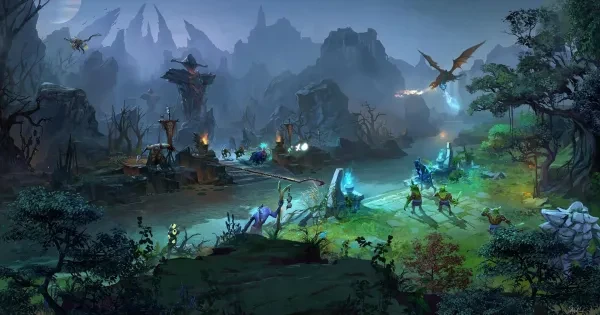The Walled Garden
For those of you who aren’t familiar, the walled garden is a term used to describe the situation where carriers control all content that goes to their device. Being able to sell directly to consumers is a very costly service that few can afford.
The walled garden is dealing some serious blows to the industry right now. Depending on what carrier you’re with, even if you buy a game from a site that sends you an SMS with an html link to get the game, some carriers will go as far as to block this SMS link or the download. This makes absolutely sure that the games can only be purchased through their deck. The fact that these small start up game developers aren’t able to sell directly to the consumer, means that they have an incredibly hard time getting their games out. This process is really stifling industry growth.
Let’s just say that you are one of the lucky publishers who gets their game onto a game deck. The only way to sell your game on that deck is to hope that somebody knows of your game and is looking for it specifically, or that they will select your game based on its catchy title. If the title is your only selling potential, then you better make sure that the game is called “Aabaa’s Adventure” because chances are that the customer won’t be searching through the entire game deck. Too bad for the developer who makes an amazing game but calls it “Zworf” (I don’t know why you would call it that anyways).
Okay, so you’ve got a good game and it has a catchy name at the beginning of the alphabet. What other problems will you incur? Firstly, the waiting times to get your game on a carrier’s deck are incredibly long compared to the time it takes to actually develop the game. It’s common for a game that took 3 months to develop to wait 8 months before their game is on the deck. This causes serious cash flow issues.
Speaking of long waiting times, let’s just say you accidentally shipped the game with a bug. We all know this would NEVER happen (wink), but just hypothetically what if? It would take a relatively long time to get your game updated because you have to go through the bureaucracy of the carrier system. Not only that, but everyone who has the unupdated games will have to repurchase the software because their carriers will demand they buy the game again.
It’s obvious why carriers are so reluctant to give up the market to more direct to consumer publishers. Although the revenue they make from game sales is relatively minor to their other competencies; carriers still receive huge revenues from controlling all content that moves through their phone. It is very hard to convince them to give up these profits in exchange for better gaming. This is not to say that it will never happen. Developers such as Gameloft have negotiated with carriers to be allowed the right to offer direct to consumer sales off their website in exchange for a limited time of exclusivity on the carrier’s game deck. These developers have demonstrated that negotiating direct to consumer sales can be a very successful part of a developer’s business strategy. We will never see the end of the walled garden in North America until the mobile game industry bands together and forces carriers to open their decks. Europe and Asia have pioneered this movement and America can benefit from similar action.





